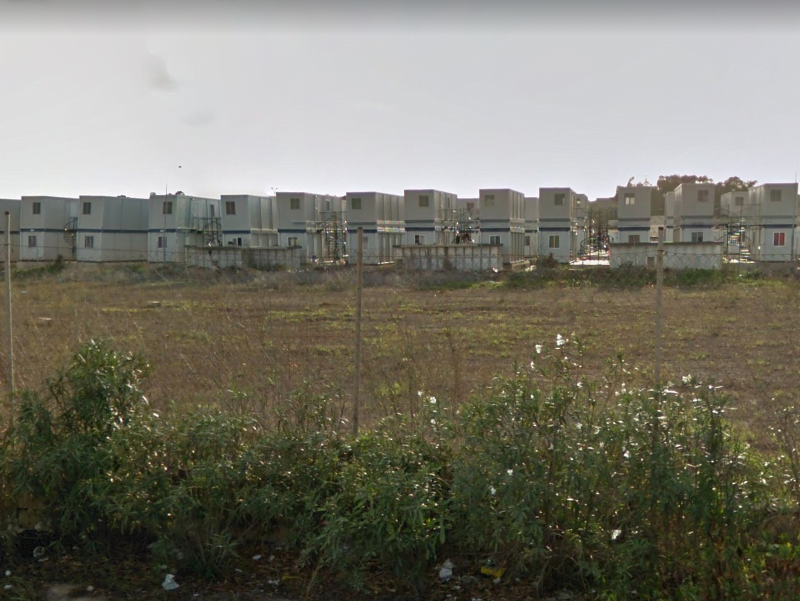The government’s delay in building a €7 million migrant centre, €5.25 million of which was to be paid with EU funds, has been cast in the spotlight by human rights NGO Aditus, following revelations by The Shift that a new plan to detain migrants offshore is in the works.
According to the Asylum, Migration and Integration Fund list of 2014 – 2020, the Hal Far project was to have begun in 2016 and ended in 2020. Its creation would have increased the residential capacity in the centre by 400 people.
However, despite being awarded millions in financial support, the new centre remains unbuilt and, moreover, the government will be paying €33,500 per day, or over €1 million a month, to charter a massive vessel to host migrants offshore.
The move is the repetition of a controversial decision taken earlier in the year when the COVID-19 pandemic hit the country, costing taxpayers €1.7 million. The government has refused to publish documents on how this money was spent.
Aditus questioned the government’s long-term planning when it comes to migration, explaining to The Shift that figures on the local EU funds website show that, besides the allocation of €5 million, the same ministry received close to €6 million for the period 2014-2022.
The funds were allocated to cover the costs of material conditions and support for asylum seekers in open and closed centres, almost €1 million to pay for psychosocial intervention services and over €1 million for the cost of security services in centres.
The government also received EU funding + €5 million to build a centre which has not been built.
This is what our tax money is being used for – not to build social housing, not to cover welfare benefits or healthcare for citizens and residents. Not to improve people's lives. https://t.co/f5pQAM7suq
— aditus foundation (@aditusNGO) August 31, 2020
Despite the government frequently citing a lack of space as a reason to justify the controversial move to house migrants on offshore vessels, requiring funds running into the millions, documents indicate that the EU has provided financial support for more of a long term plan, including the construction of a multimillion euro migrant centre in Hal Far.
Our centres are full and we have no place for more migrants. We turn to the @EU_Commission and they say: ‘You are right, you shouldn’t be left to bear this burden alone’. We need solidarity from #EU. We speak to the #Vatican and they say we are right, as do @UN officials.
— Evarist Bartolo (@EvaristBartolo) May 2, 2020
“It is important to see that funding is also granted for material conditions (food, medical services, support services and per diems), and these expenses are not taken out of the national budget, as we assume will be done with the quarantine ships, as we are not aware that any EU funding was allocated to this,” Aditus pointed out.
Therefore, to cover a number of years of receiving asylum seekers, the State also received €8 million, the NGO explained. The exact status of the construction of the new centre is unknown.
The Shift had reported that while the government is trying to finance this massive expense using EU funds, Brussels has signalled its difficulty in approving this spending on such a questionable move, widely condemned by human rights organisations.
On Wednesday, Brussels media reported that according to the Brussels executive, under certain legal conditions, money from the EU can be used by Member States to hold migrants on boats offshore – under certain legal conditions.
EuObserver reported that the European Commission’s comments are a general statement – not linked to the specifics of Malta’s decision – noting that people on board must have access to asylum procedures in order to secure EU funds. The vessel must therefore be in Maltese territorial waters as EU asylum law does not apply in international waters.
The Commission further noted that the money can only be used to finance food, medical assistance and boat personnel.
This does not mean that specifically designated EU funds allocated to Malta can be used for purposes, other than those for which they are awarded. Malta therefore risks losing EU funds allocated to it to cope with migration long term, such as the construction of the facility, since the Prime Minister has shifted decisions to offshore detention.
In comments to The Shift, Aditus officials reiterated that detained individuals must have access to the asylum system, must be provided with information and have access to family and lawyers. It also said that such quarantines restrict the movement of migrants, and is therefore a form of detention.
“There are clear laws and regulations on when and how a State can detain individuals, even in cases of disease prevention. Disease prevention does not give any State or authority a carte blanche to deprive individuals of their liberty, without adhering to human rights standards and laws,” the NGO said.
Aditus reiterated that indefinite detention is not allowed, nor is detention where living conditions are “sub-standard and undignified”.
“We should question why Malta is still operating migration through management-by-crisis, without a long-term vision or contingency plans. This inevitably leads to people being treated inhumanely, to the rise of xenophobic voice and a waste of taxpayers’ money of epic proportions,” noted Aditus.
In May, The Shift sent questions and reminders to Minister Bartolo, asking about the ministry’s contingency plan on migration. No replies were received.












